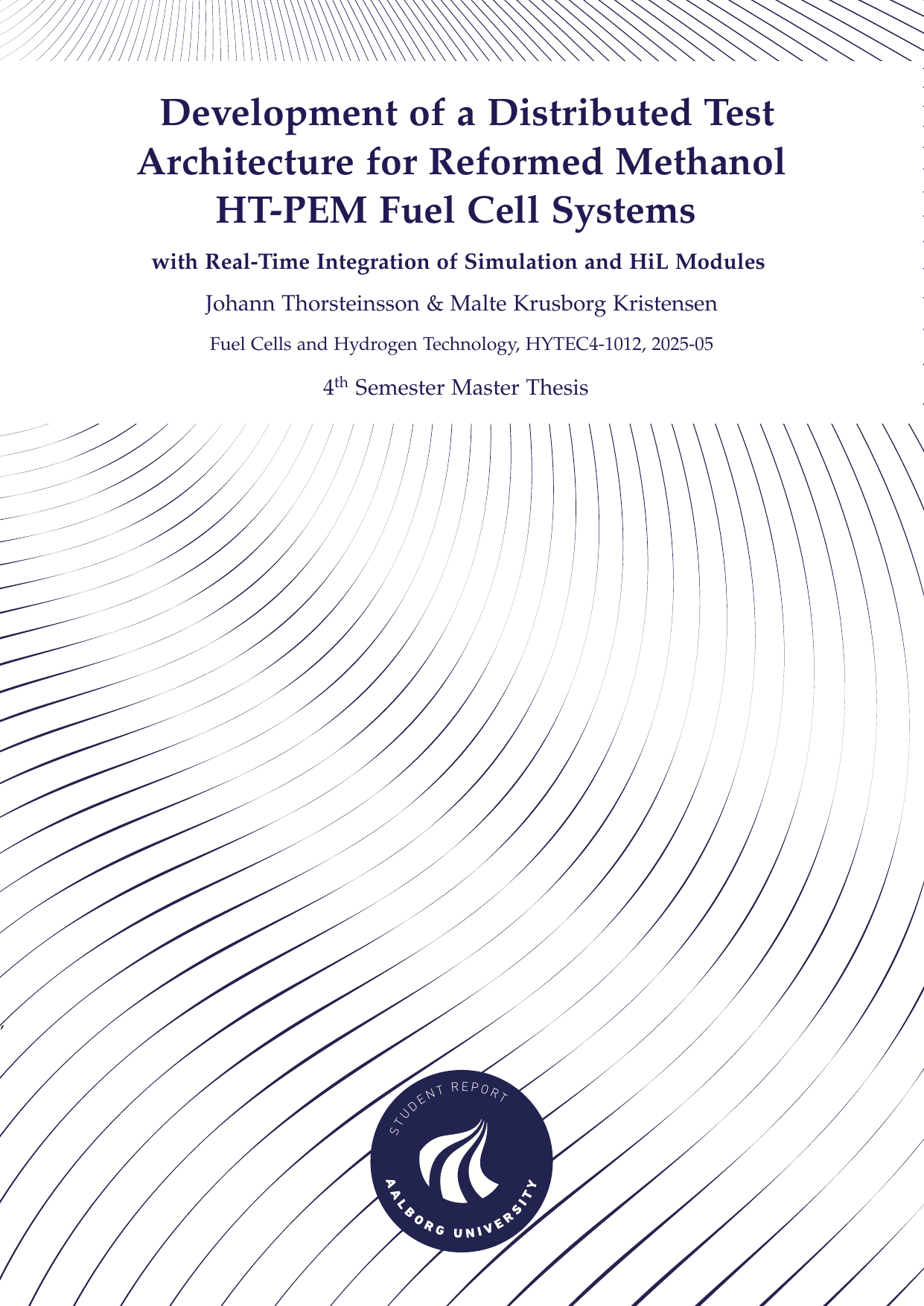
Development of a Distributed Test Architecture for Reformed Methanol HT-PEM Fuel Cell Systems: with Real-Time Integration of Simulation and HiL Modules
Term
4. term
Education
Publication year
2025
Submitted on
2025-05-27
Pages
100
Abstract
This thesis presents the development of a distributed test architecture for reformed methanol high-temperature proton exchange membrane fuel cell (HT-PEMFC) systems, aimed at combined heat and power (CHP) applications in microgrids. The system integrates both real-time simulation and hardware-in-the-loop (HiL) components to enable modular, scalable, and realistic testing. A key contribution is the implementation of a physical methanol steam reformer test bench, which provides dynamic gas composition data to a real-time fuel cell model. The fuel cell model, developed using a gray-box approach, simulates electrical and thermal behavior and was validated against experimental data with 8.45% average relative error. A mid-level control layer coordinates the reformer, fuel cell, and thermal modules, and interfaces with a high-level energy management system (EMS). A novel gas composition control strategy was implemented to regulate CO and methanol slip by adjusting reformer temperature. Validation tests demonstrated effective gas shaping under varying flow rates. A full-system test confirmed the architecture’s ability to manage dynamic loads, coordinate module behavior, and maintain safety. The results highlight the system’s potential for future research in degradation analysis, remote testing, supporting the broader adoption of HT-PEMFC systems in sustainable energy applications.
This thesis presents the development of a distributed test architecture for reformed methanol high-temperature proton exchange membrane fuel cell (HT-PEMFC) systems, aimed at combined heat and power (CHP) applications in microgrids. The system integrates both real-time simulation and hardware-in-the-loop (HiL) components to enable modular, scalable, and realistic testing. A key contribution is the implementation of a physical methanol steam reformer test bench, which provides dynamic gas composition data to a real-time fuel cell model. The fuel cell model, developed using a gray-box approach, simulates electrical and thermal behavior and was validated against experimental data with 8.45% average relative error. A mid-level control layer coordinates the reformer, fuel cell, and thermal modules, and interfaces with a high-level energy management system (EMS). A novel gas composition control strategy was implemented to regulate CO and methanol slip by adjusting reformer temperature. Validation tests demonstrated effective gas shaping under varying flow rates. A full-system test confirmed the architecture’s ability to manage dynamic loads, coordinate module behavior, and maintain safety. The results highlight the system’s potential for future research in degradation analysis, remote testing, supporting the broader adoption of HT-PEMFC systems in sustainable energy applications.
Keywords
HT-PEM ; Methanol Steam Reformation ; Hardware-in-the-Loop ; DTA ; Fuel Cells ; CHP ; Microgrid ; Experimental Framework ; Remote Communication ; Modular System Framework ; Methanol ; Chemcial Hydrides ; HiL ; Fuel Cell Modeling ; Heat Integration ; Optimization ; Real-Time Simulation ; Real-Time Communication ; EMS
Documents
